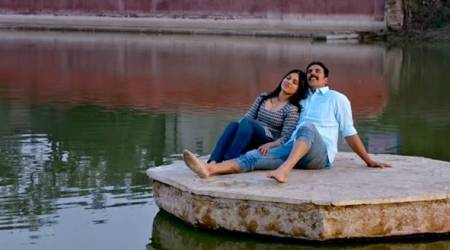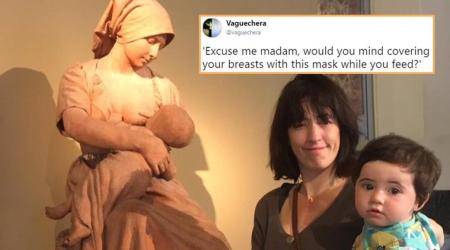 Ravi Wagh wants cricket to change the lives of visually impaired. Express photo by Sandeep Daundkar
Ravi Wagh wants cricket to change the lives of visually impaired. Express photo by Sandeep Daundkar
THE 10-FT-LONG corridor outside his modest home at Kamalmala Wada in Pune’s Bhavani Peth served as a cricket pitch for visually impaired Ravi Wagh. Five years old and playing by himself, Wagh was bowler, batsman, fielder — even the commentator.
He would decide when to hit a six and when to get bowled, and occasionally take on the role of veteran commentator Tony Greig ( who died in 2012), rattling off asides, much to the amusement of onlookers.
“Ah, that was 40 years ago. But such was the love for cricket in my family that there was nothing else to do but play. It did not matter that I could not see,” says Wagh, pausing to attend a call at the government-run Sassoon General Hospital.
Wagh, a telephone operator in charge of the hospital’s internet and WiFi, has been elected unopposed for the second time as president of the Cricket Association for the Blind in Maharashtra.
The youngest of five brothers and three sisters, Ravi’s impairment never really affected his family. “There were so many of us and I would hang out with someone or the other. Cricket was a passion. My elder brother Sudhir played with fast bowler Zaheer Khan. I remember 1978-79, when Kapil Dev and Madan Lal were playing exciting cricket. I could not see the matches but I lived and relived each one with my role-play,” he says.
Wagh attended Poona School for the Blind and played cricket with his brothers in his free time. It was during college days that he really bloomed. “I completed my post-graduation in History from Nowrosjee Wadia College and participated in each tournament for the blind — at the college, university, district, state and national level,” says Wagh, adding shyly that he has stopped counting the medals he has won.
But in 1998, Wagh’s chances of making it to the national team for the blind faced a setback when he was not picked for the World Cup.
Taking the disappointment in his stride, Wagh reasoned that the selectors were from Gujarat and Delhi. “It hurt that my talent was not recognised, but I made it my goal to reach out to talented blind players in every nook and corner of Maharashtra and send them to the national team for the World Cup,” he said.
From 2000 to 2009, he worked as a telephone operator at Ruby Hall Clinic and honed his mono-acting skills to the extent that actor Raj Babbar awarded him the first prize in a statewide dramatics competition. In 2011, Wagh set up the Cricket Association for the Blind in Maharashtra.
Wagh trains and coaches youngsters at the grounds of J N Petit Technical High School and Nowrosjee Wadia College. Under his guidance, Dilip Munde from Marathwada made it to the national team for the T20 Blind Cricket World Cup in 2012. In 2014, Pune’s Amol Kharche was picked for the World Cup, and earlier this year, Anees Baig was selected for the T20 World Cup. India won all three trophies.
“We want all our tournaments to be as professional as the ones played by persons with sight,” says Wagh. After a long day at work, Wagh gets back to promoting cricket. He makes calls to the Association’s out-of-station members, drafts letters requesting permission to use school and college grounds for tournaments, and meets prospective sponsors and officials at the Maharashtra Cricket Association, seeking BCCI affiliation. “These children are blind. It is a huge struggle for them to cope with anything. So why not bring cricket into their lives,” says Wagh.

